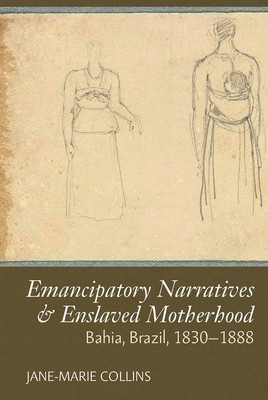
- We will send in 10–14 business days.
- Author: Jane-Marie Collins
- Publisher: Liverpool University Press
- ISBN-10: 180085692X
- ISBN-13: 9781800856929
- Format: 16 x 23.9 x 3.1 cm, hardcover
- Language: English
- SAVE -10% with code: EXTRA
Reviews
Description
Emancipatory Narratives & Enslaved Motherhood examines three major currents in the historiography of Brazilian slavery: manumission, miscegenation, and creolisation. It revisits themes central to the history of slavery and race relations in Brazil, updates the research about them, and revises interpretations of the role of gender and reproduction within them. First, about the preponderance of women and children in manumission; second, about the association of black female mobility with intimate inter-racial relations; third, about the racialised and gendered routes to freed status; and fourth, about the legacies of West African female socio-economic behaviours for modalities of family and freedom in nineteenth-century Salvador da Bahia, Brazil. The central concern within the book is how African and African descendant women navigated enslaved motherhood and negotiated the divide between enslavement and freedom for themselves and their children. The book is, therefore, organised around the subject position of the enslaved mother and the reproduction of her children in enslavement, while the condition of enslaved motherhood is examined through overlapping historical praxis evidenced in nineteenth-century Bahia: contested freedom, racialised mothering, and competing maternal interests - biological, ritual, surrogate. The point at which these interests converged historically was, it is argued, a conflict over black female reproductive rights.EXTRA 10 % discount with code: EXTRA
The promotion ends in 17d.06:44:56
The discount code is valid when purchasing from 10 €. Discounts do not stack.
- Author: Jane-Marie Collins
- Publisher: Liverpool University Press
- ISBN-10: 180085692X
- ISBN-13: 9781800856929
- Format: 16 x 23.9 x 3.1 cm, hardcover
- Language: English English


Reviews